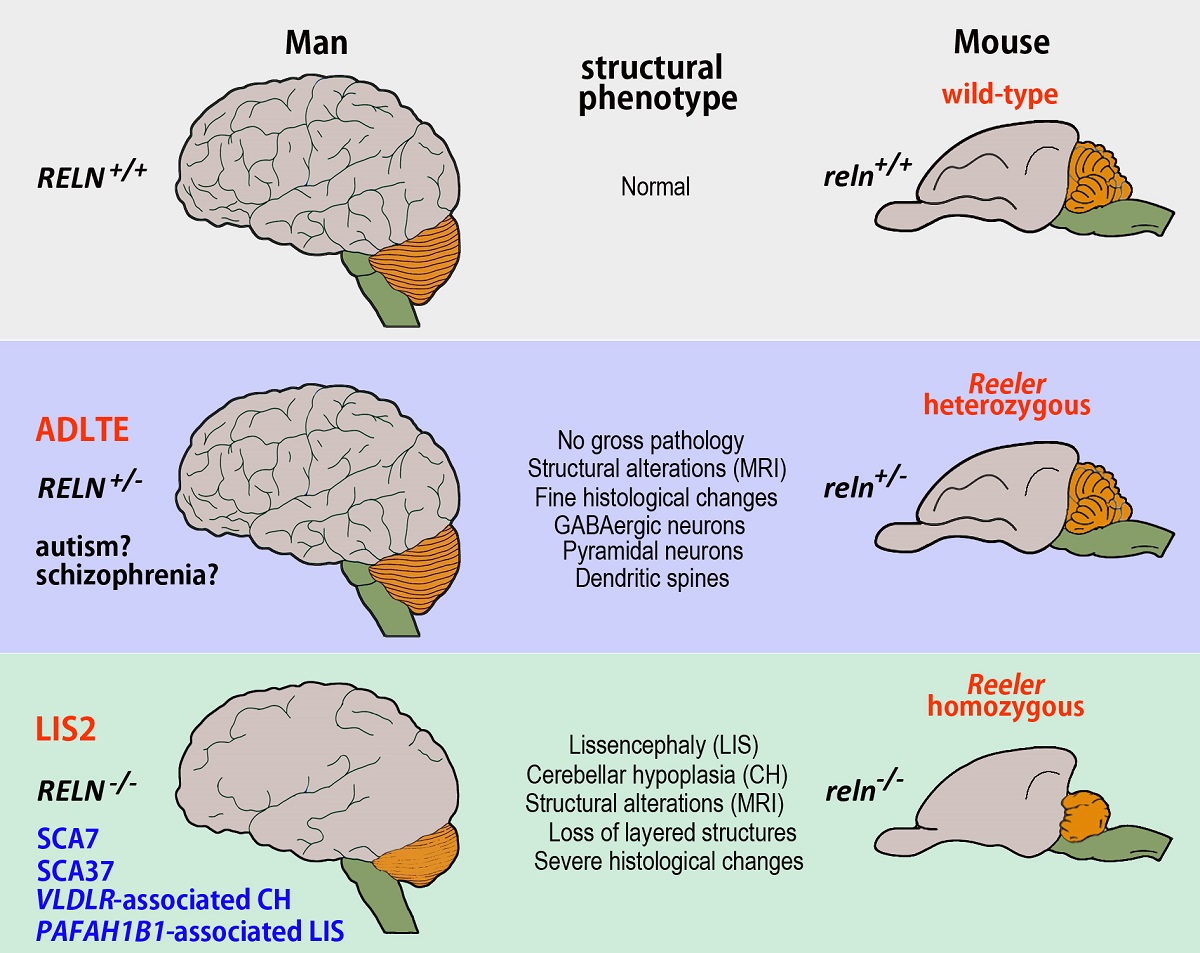The Reeler mutation was described in mouse more than fifty year ago. Later, its causative gene (reln) was discovered in mouse, and its human orthologue (RELN) was demonstrated to be causative of lissencephaly 2 (LIS2) and about 20% of the cases of autosomal-dominant lateral temporal epilepsy (ADLTE). In both human and mice the gene encodes for a glycoprotein referred to as Reelin (Reln) that plays a primary role in neuronal migration during development and synaptic stabilization in adulthood. Besides LIS2 and ADLTE, RELN and/or other genes coding for the proteins of the Reln intracellular cascade have been associated more or less substantially to other conditions such as spinocerebellar ataxia type 7 and 37, VLDLR-associated cerebellar hypoplasia, PAFAH1B1-associated lissencephaly, autism and schizophrenia. According to their modalities of inheritances and with substantial differences among each other, these neuropsychiatric disorders can be modeled in the homozygous (reln-/-) or heterozygous (reln+/-) mouse. The usefulness of these mice as translational models is discussed, with focus on their construct and face validity. The latter is mainly treated directing the attention to the histological, neurochemical and functional observations in the cerebral cortex, hippocampus and cerebellum of Reeler mice and their human counterparts.

